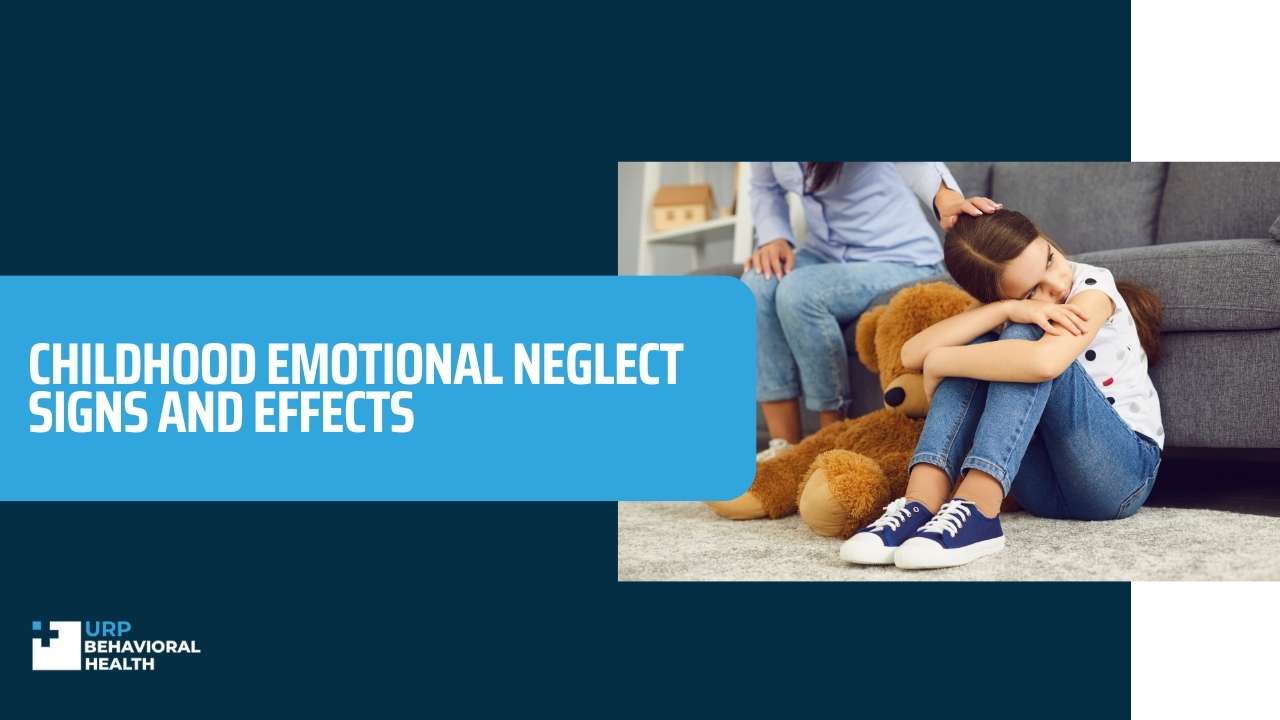
Childhood Emotional Neglect | Signs and Effects
According to experts, as high as 18% of adults report that they have experienced some form of childhood emotional neglect. Emotional neglect can be intentional or unintentional by the caregiver, but it can still have long-lasting effects on individuals. Adults can struggle with severe anxiety, PTSD, and dissociative behaviors. A multitude of treatment options are available that can help individuals recover from the effects of this condition. Let us look into the common signs of childhood emotional neglect, its effects, and common treatment methods.
What is Childhood Emotional Neglect?
Neglect refers to a parent or guardian’s inability to meet the emotional and physical needs of children. Therefore, emotional neglect is when a caretaker does not pay attention to the emotional needs of children in their care.
This type of neglect often exists on a spectrum, as caregivers can be more aware of some emotional needs of their children than others.
Regardless of the extent to which their emotional needs are not met, this can have long or short-term effects on their development. Some examples of emotional neglect can include ignoring a child, being emotionally unavailable, exposing children to domestic violence, and disregarding a child’s mental well-being, among others.
Major Signs of Emotional Neglect in a Child
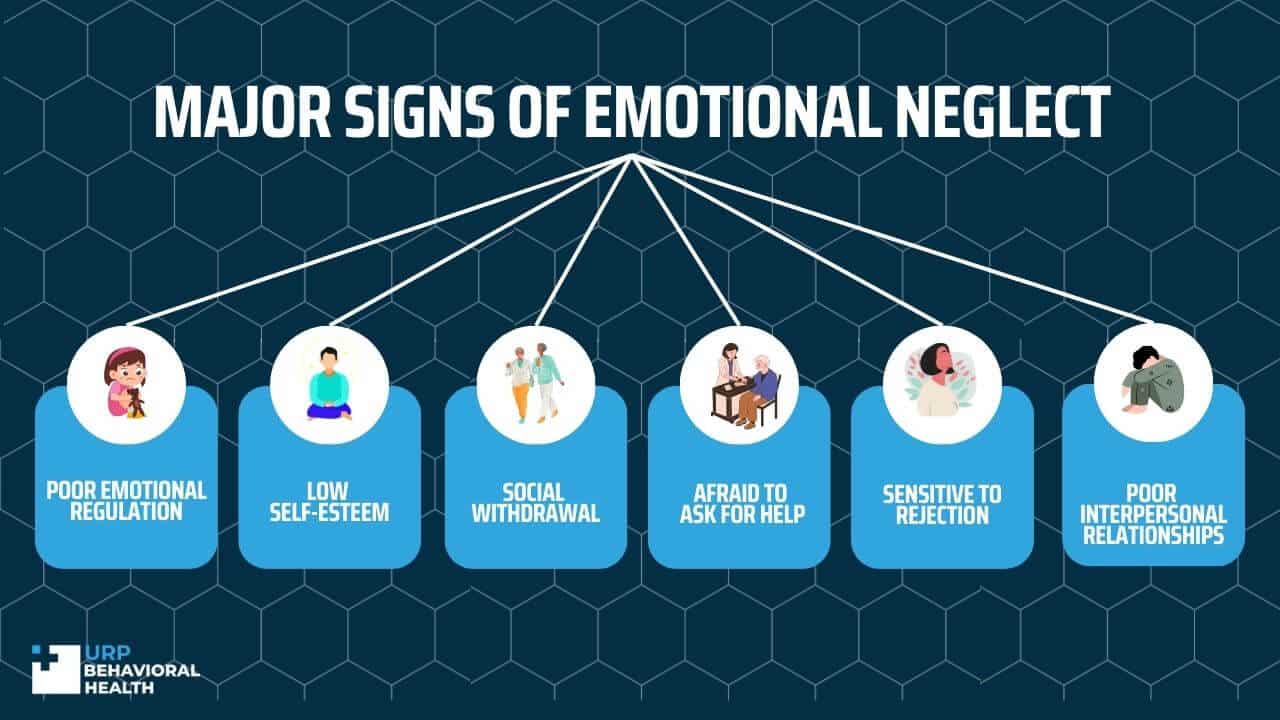
Unfortunately, signs and symptoms of emotional neglect can be difficult to spot in most individuals. While it may seem like these people are self-sufficient or independent, they could actually have trouble relating to peers and generally struggle in social situations.
When determining whether a person has experienced emotional neglect during their childhood, mental health specialists at treatment facilities like URP Behavioral Health look for certain signs. These include:
Poor Emotional Regulation
Emotional regulation refers to an individual’s ability to effectively process their emotions. Adults who have struggled with emotional neglect can have a difficult time handling stress and controlling their emotions. They can also feel a lot of shame towards their emotions, which can lead to further difficulty in processing their emotions in a healthy way.
Low Self-esteem
Low self-esteem is a very common sign of childhood emotional neglect, as individuals can often find it difficult to establish boundaries or be more open to their peers. Their lower self-esteem can also lead to the individual not finding joy in everyday life, which can seriously affect their mood and how they build connections with peers.
Social Withdrawal
Individuals who have experienced childhood emotional neglect have a hard time processing their emotions and can feel aloof in most social situations. Consequently, they have difficulty connecting with other people.
When they continue to feel this way, they avoid building connections and will often keep to themselves. Along with emotionally distancing themselves from people in their surroundings, they could also physically isolate themselves from other people.
Afraid to Ask for Help
The social isolation that individuals can feel due to their childhood emotional neglect can make them invalidate their own emotions. By invalidating their own emotions, they can often struggle with asking for help from friends and family. Furthermore, even if someone offers them help, they are unwilling to accept it.
Sensitive to Rejection
Another visible sign of someone struggling with childhood emotional neglect is that they will often be very sensitive to rejection. This increased fear can lead to them being afraid to take advantage of opportunities that come their way or to interact with people around them.
Poor Interpersonal Relationships
Finally, one of the most prevalent signs that an individual was emotionally neglected as a child is that they will often have poor interpersonal relationships. Their social isolation and inability to connect with people can often lead to them distancing themselves from relationships. In more romantic relationships, their lower self-esteem could require their significant other to regularly reinforce their feelings.
Effects of Childhood Emotional Neglect
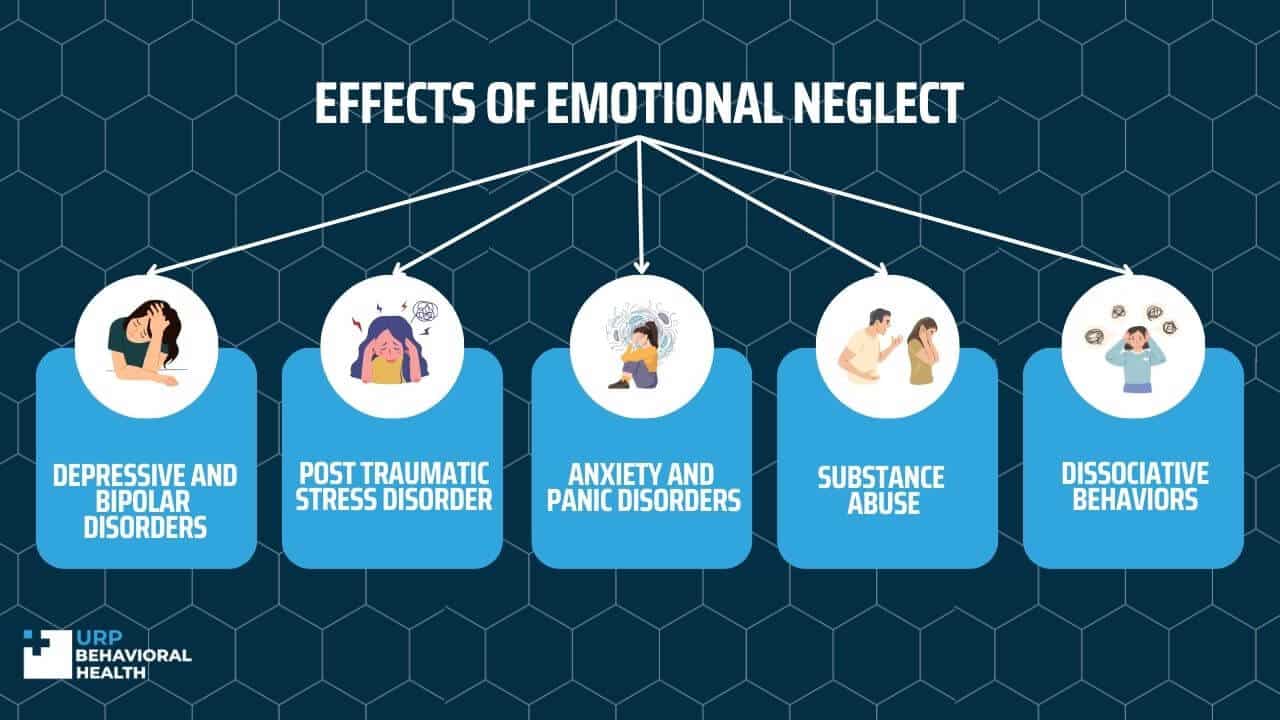
Although some adults can show some of these aforementioned signs of childhood emotional neglect, it is not always the case. But even if individuals do not show any major symptoms of childhood emotional neglect, the effects it can have on them are severe.
Depressive and Bipolar Disorders
According to experts, childhood emotional neglect is heavily associated with bipolar disorder. Their findings showed that adults who suffered from emotional abuse as children showed symptoms of bipolar disorder, leading to them having a hard time in social situations. The severe depressive and manic states can greatly affect their quality of life.
Post Traumatic Stress Disorder
Studies also show a link between childhood emotional neglect and PTSD, as adults show more symptoms as they age. PTSD could lead to severe anxiety, difficulty sleeping, nightmares, and uncontrollable visions of the event.
Anxiety and Panic Disorders
Research looking into the effects of emotional neglect on adults during their childhood showed a well-established correlation. The study conducted by California State University Fullerton showed significant associations between emotional neglect and anxiety. The increase in anxiety also comes with an increase in panic disorders, depression, and PTSD.
Substance Abuse
Substance abuse also has a very strong association with emotional neglect in childhood, as studies suggest that adults are more likely to suffer from this condition. When compared to other forms of childhood abuse, such as physical and sexual, the research indicated a much higher likelihood that adults suffering from emotional neglect will fall into substance abuse.
Dissociative Behaviors
Dissociative behaviors are also very common among individuals who suffered from emotional abuse in their childhood, according to expert research. The most common dissociative symptom that individuals will often experience as a result of their childhood emotional negligence is shutdown dissociation. Their findings were also consistent with people who suffered from other forms of abuse.
Healing from Childhood Emotional Neglect
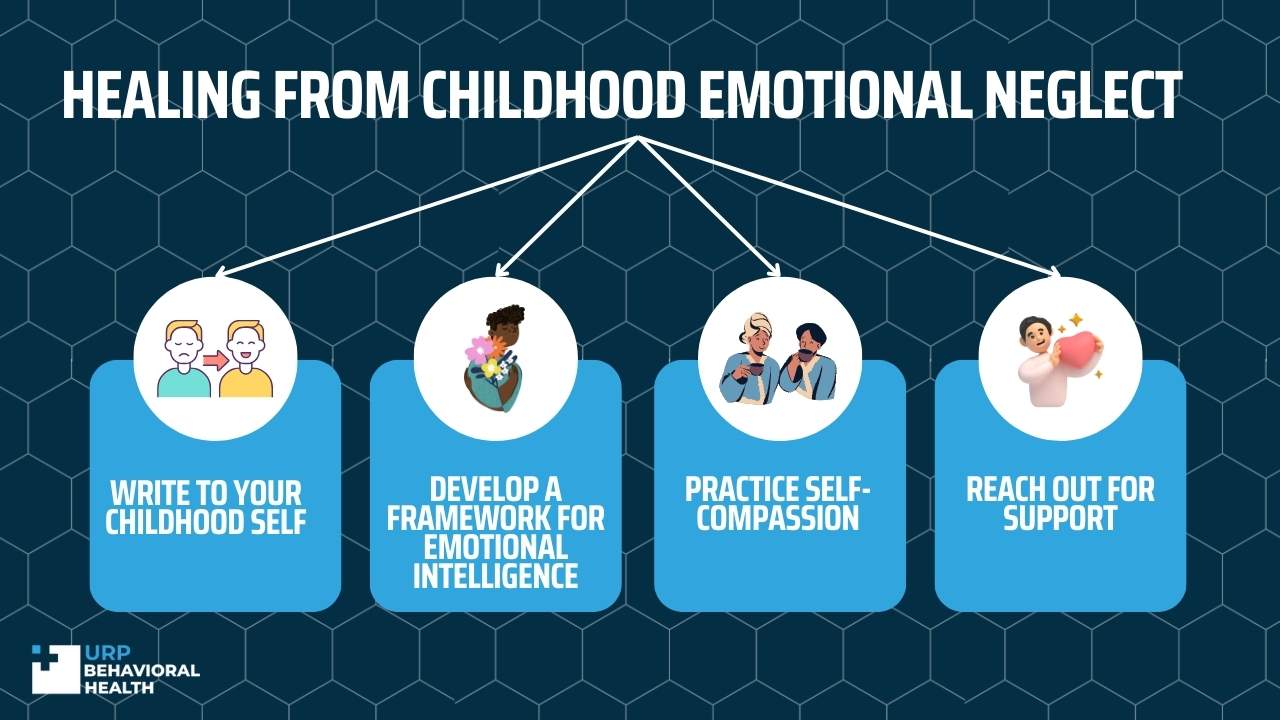
The effects of emotional neglect during childhood can stay with people well into adulthood; not only does this affect how they are able to process their emotions, but it also affects how they build relationships. Fortunately, there are a number of ways that you can start healing from your childhood experiences.
Write to Your Childhood Self
A powerful way that you can process your emotions surrounding emotional neglect is to write a letter to your childhood self. You can write a cathartic letter with the love and support that you feel was missing from your childhood or acknowledge the pain you feel. Along with being an effective way to process your emotions, it also helps you overcome any feelings of shame or self-blame.
Develop a Framework for Emotional Intelligence
Parents who are emotionally neglectful of their children will not provide them with the necessary emotional framework to process emotions. By building and developing a framework for emotional intelligence, you can better process your emotions and handle stress.
Practice Self-Compassion
It is likely that adults who suffered from childhood emotional neglect at a young age became overly critical of their actions. Try not to be too critical of your work and be curious about the originals of specific types of criticism. Increasing curiosity is another effective way to practice self-compassion.
Reach Out for Support
Finally, one of the most effective ways to better heal from traumatic childhood experiences is to reach out for support. You should seek out love and validation from friends and family. Not only can this provide a sense of comfort to you, but it can also help build a better connection with them. You can also contact a support group to help with your particular issue.
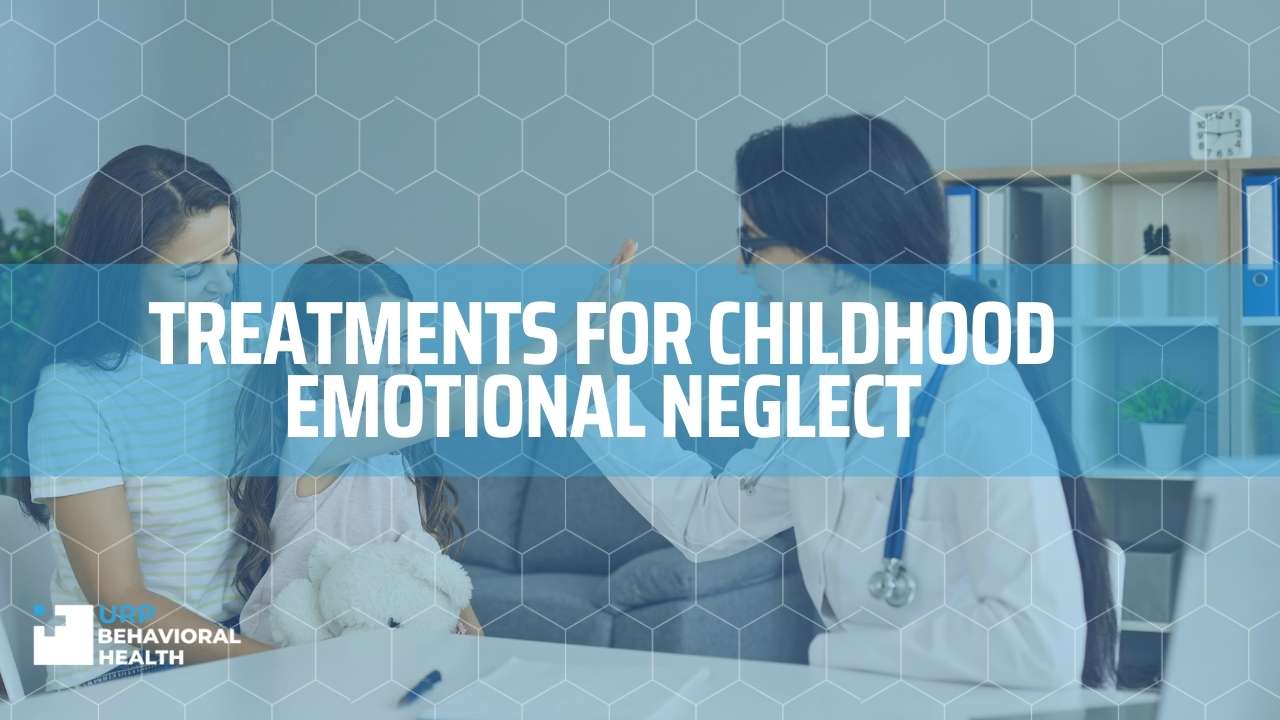
Treatments for Childhood Emotional Neglect
Few people seek therapy with the intention of healing from emotional neglect. Usually, people need treatment interventions for conditions that develop as a result of emotional neglect when they were a child. Nonetheless, it’s a form of complex trauma that needs to be resolved, so therapists use specific evidence-based therapies designed to help you process what happened.
Group Therapy
Group therapy can be a very effective way for people to process their traumatic experiences with childhood emotional neglect. Group therapy helps remove the sense of isolation that individuals feel and helps them build connections with other people and slowly build on their social skills. Furthermore, realizing that their experience is not unique helps decrease feelings of loneliness and isolation.
Family Therapy
Family therapy can help individuals break down the barriers that they have created with their family and build stronger relationships. This form of therapy also helps individuals confront parents who neglected them and possibly make peace with their past.
Individual Therapy
Individual therapy can be a healthy way for people to cope with their traumatic experiences and better regulate their emotions. It also offers individual attention to people who are struggling, which can sometimes be difficult with family or group therapy sessions.
CBT
Cognitive Behavioral Therapy (CBT) is also a very effective method to help individuals cope with their traumatic experiences. It can help build better interpersonal relationships and help emotionally neglected adults to better express their thoughts and emotions. CBT can also help reinforce habits to help improve an individual’s self-worth.
EMDR
EMDR therapy can help adults who struggled with traumatic childhood emotional neglect by reorganizing their traumatic thoughts. Not only can this form of therapy help individuals better remember the events that they consider emotional neglect, but it also allows them to process and understand them. Therefore, it is another popular option during individual therapy for individuals who are looking to cope with their experiences.
Conclusion
Childhood emotional neglect is a very serious form of maltreatment that can stay with people well into their adulthood. While it can have noticeable signs in adults, such as lower self-esteem, social withdrawal, and poor interpersonal relationships, it can sometimes be less apparent. Fortunately, there are a multitude of treatment options available that can help individuals with different severities. But most importantly, overcoming the traumatic experiences of childhood emotional neglect requires you to first acknowledge the signs and then seek out relevant support. After you successfully acknowledge the pain that you have experienced, become more compassionate to yourself, and get the help you need, you can start moving past those events.

